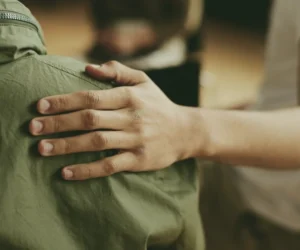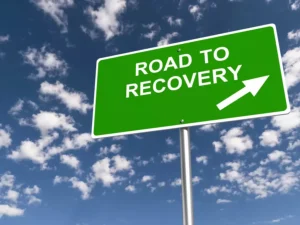The Power of Family: A Lifeline in Substance Use Disorder Recovery

At our Orange County drug detox facility, we want you to be a part of your loved one’s recovery process. We invite you to visit your family member during treatment and will work with you to schedule a convenient time. There are several emotions that develop at this time, many of which can be complicated to manage in a healthy manner. While everyone exhibits different reactions to having a family member with a substance use disorder, it is common for members of a family unit to fall into a role that either allows them to feel in control or helps them cope with the chaos surrounding them.

Family involvement can be calibrated to meet the unique developmental needs of transition-age youth.
- This is echoed by Dr. Emily Chen, a leading addiction specialist, who states, “Family support is a cornerstone of successful addiction treatment. It provides a safe and supportive environment for the individual to heal and rebuild their life.”
- In the first phone call from the therapist or doctor, families are anxiously waiting for an update on the well-being and progress of their family members.
- Furthermore, as of 2020, 13.5% of people aged 12 and older reported using an illegal drug within the past month.
- When you live with alcohol use disorder, positive outcomes often involve the entire family.
Finally, the siblings of suffering individuals may encounter many difficulties. Just as the parents, spouses, and children of substance users, the siblings of these individuals may take on new roles. They may become financial supporters for the individuals family support in addiction recovery and/or their families. Siblings may also struggle with guilt and shame as a result of their loved ones’ addictions. The family may begin to depend on one spouse’s income instead of both as a result of the addicted person’s inability to keep working.
What Is The Role Of Family In Addiction Recovery?

Yet, in conventional practice little support outside of formal treatment settings is provided to families affected by SUD, which contributes to high rates of treatment failure and relapse (Quanbeck et al., 2014). These are persons who are in recovery or who have personal family experience with recovery. They have expertise in addiction and addiction services, allowing them to provide support, encouragement, and guidance https://ecosoberhouse.com/ to help link individuals to services based on their specific needs, circumstances, and recovery goals. Substance abuse and addiction can damage family dynamics, erode trust, and weaken communication. Family members who experience a loved one battling with a substance use disorder (SUD) often endure a host of painful emotions. Equally frustrating is the hopelessness loved ones feel in response to substance abuse.
SERVICES FOR TREATMENT PROVIDERS
24/7 Open Access Centers offer round-the-clock access to assist New Yorkers in need of addiction treatment services. Open Access Centers can provide immediate assessments and referrals to treatment at any time of day or night, as well as rapid access to addiction medications such as buprenorphine. These centers can also work with local law enforcement to direct low-level offenders to treatment.

Connect with understanding peers.

While your family member is in treatment, they may have opportunities for you to come visit them at scheduled times. Providing your family member is open to it, take advantage of these opportunities and attempt to hold back on expressing your resentments about things that happened in the past. Express your support and pride that they are getting the help they need to break the hold the disease of addiction has on their life. Family members may feel frustration as the adolescent skips school, gets poor grades, or befriends other teens who abuse drugs. Parents often feel anxiety over their child’s whereabouts and sudden changes in their social circles.
- Champlain Valley Family Center also delivers specialized programming and related services to the adolescent population.
- They can share some of the knowledge they’ve learned from private research, support groups and therapy sessions and give their friends destigmatizing words to use instead.
- As CEO, Joe led Exponents through the disruption of COVID-19, enabling the agency to continue to provide drug treatment and crisis management services without interruption.
- She has passed more than 120 laws since taking office in 2006, and in 2015 became the Chair of the Assembly Committee on Alcoholism and Drug Abuse.
- When you begin your journey toward recovery, your family members may also need the support of mental health professionals.
Peer Engagement Specialists
This is because recovery is now solid, and attention can be turned back to the person with alcohol use disorder and the family. At this time, the focus might be on constructing support for both the person living with alcohol use disorder and family members with enabling behaviors. An item that may also be addressed in the early recovery stage is continual support within the family unit to stay focused on their own recovery. This may happen through the realization that the family can’t control and enable the drinking, and that only when the person living with alcohol use disorder reaches out for help outside the family system can they move into the stage of transition. Attempts may be made to help the person gain insight into why life has become unstable for so many in the family unit. However, in the final analysis, it may be up to them to begin the process of recovery.
How Can I Help My Loved One’s Recovery?
- One evidence-based model for enhancing engagement in this scenario is Strategic Structural Systems Engagement (Szapocznik et al., 1988), which was developed on samples of high-risk youth.
- There are several emotions that develop at this time, many of which can be complicated to manage in a healthy manner.
- In the past decade several literature reviews and meta-analytic studies have emphasized the top-shelf effectiveness of family-based treatment for SUD across the lifespan.
- Giving up a mind-altering substance is incredibly difficult for many people, especially when withdrawal is painful and when they are no longer able to suppress negative emotions with the substance.
- If you’re unable to leave home for any reason, there are ways to attend virtual meetings.
Family Support and Counseling for Drug and Alcohol Addiction
- Families can play an essential part in assisting their loved ones by encouraging them to seek treatment, offering emotional support, and directing them to resources and specialists who can help them on their road to recovery.
- This type of counseling can work to meet the emotional, physical, and mental needs of these families.
- She and her staff regularly serve as a resource to families who want to support their loved one’s recovery but don’t know how.
- These roles have been named many things, and this is a version of what they are and how they play out.

